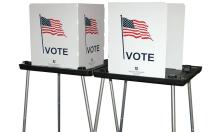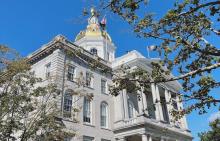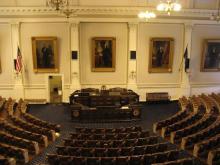We are being asked to continue to defend voting rights. Whether it’s for ourselves or our family and friends, there are several bills that will be voted on in their respective committees before heading to the full House for a later vote. Here we go and thank you in advance for taking a few moments to oppose some awful legislation.
HB 418 is a terrible bill! It would require voters to be either absent from the town or city in which they are domiciled or disabled and unable to vote in person in order to be eligible for an absentee ballot. What they are removing from current law is the discriminatory “religious observance” eligibility for an absentee ballot. Who does that, you ask. The bill was sponsored by Young Americans for Liberty (YAL) member Rep. John Sellers, R-Bristol and other Liberty Alliance members, that’s who. The House Election Law Committee will be in executive session on Tues., Mar. 18th and will be voting on this bill and a few others that day. Please take a moment to click on this link and Urge Legislators to OPPOSE HB217, HB686, and HB418.
SB 287 would require absentee ballot applicants to present a copy of their photo identification with their application. The Senate Election Law Committee will be in executive session on Tues., Mar. 18th and will be voting on this bill that day. Please take a moment to click on this link and Urge the Senate Election Law Committee to OPPOSE SB287.
HB 684 will prevent student identification cards to be used as a means to obtain a ballot. More targeted voter suppression from a Republican sponsored bill. In current law RSA 659:13, II(a), a student ID is acceptable if it comes from a NH college, university or career school. This bill aims to repeal that. Why?
The House Election Law Committee will be in executive session on Tues., Mar. 18th and will be voting on this bill and another one that day. Please take a moment to click on this link and Urge legislators to OPPOSE HB618 and HB684.
Here's one we can all get behind. HB 385 reestablishes exceptions for the requirement to present identification to vote. Sponsored by Rep. Connie Lane, D-Concord, this bill seeks to undo voter suppression damage done during the last session by bringing back the affidavit system which has been proven to work efficiently. The House Election Law Committee will be in executive session on Tues., Mar. 18th and will be voting on this bill that day. Please take a moment to click on this link and Please urge your Representatives to SUPPORT HB 385.
"All tyrannies rule through fraud and force, but once the fraud is exposed they must rely exclusively on force." ~ George Orwell










